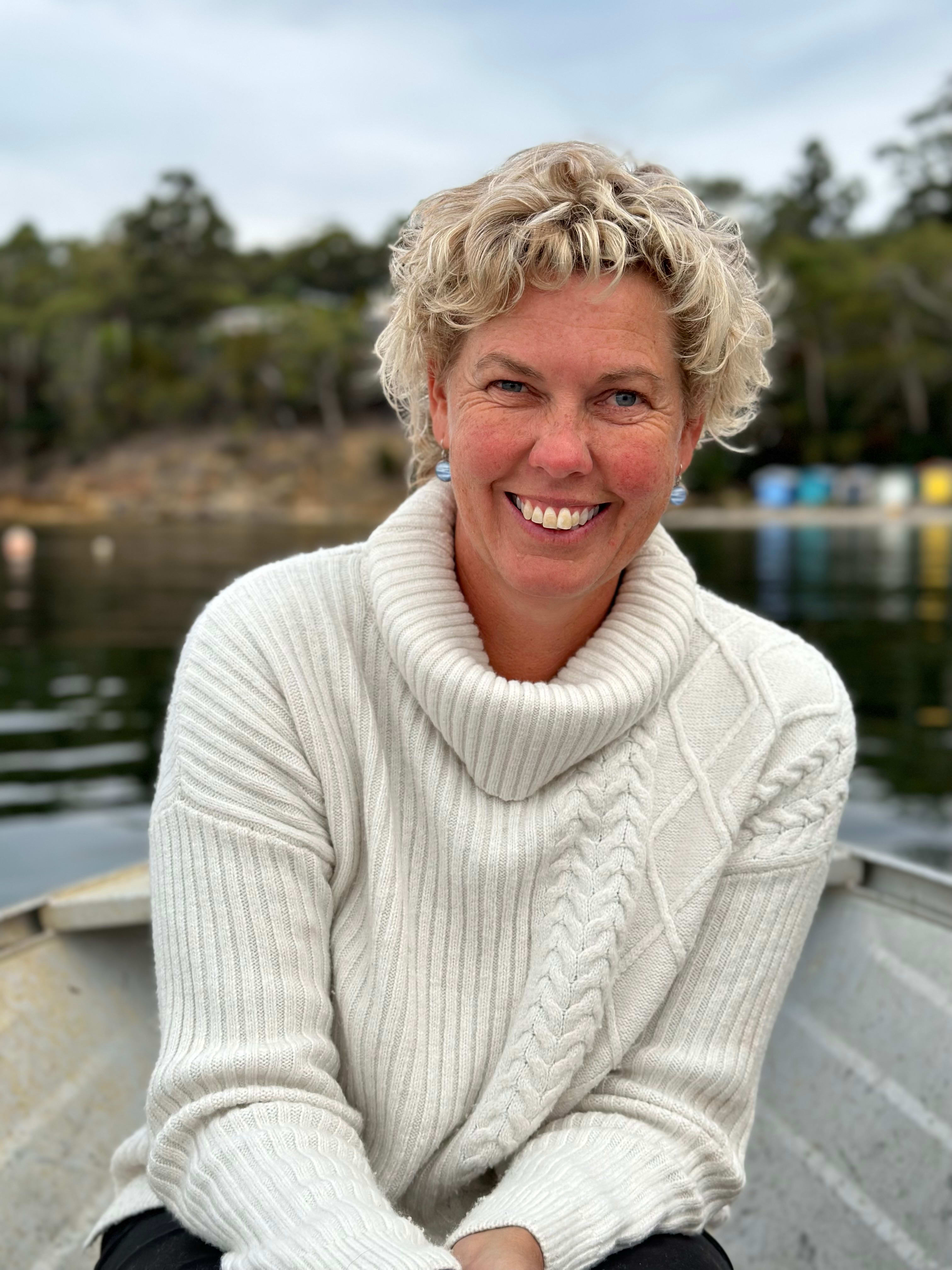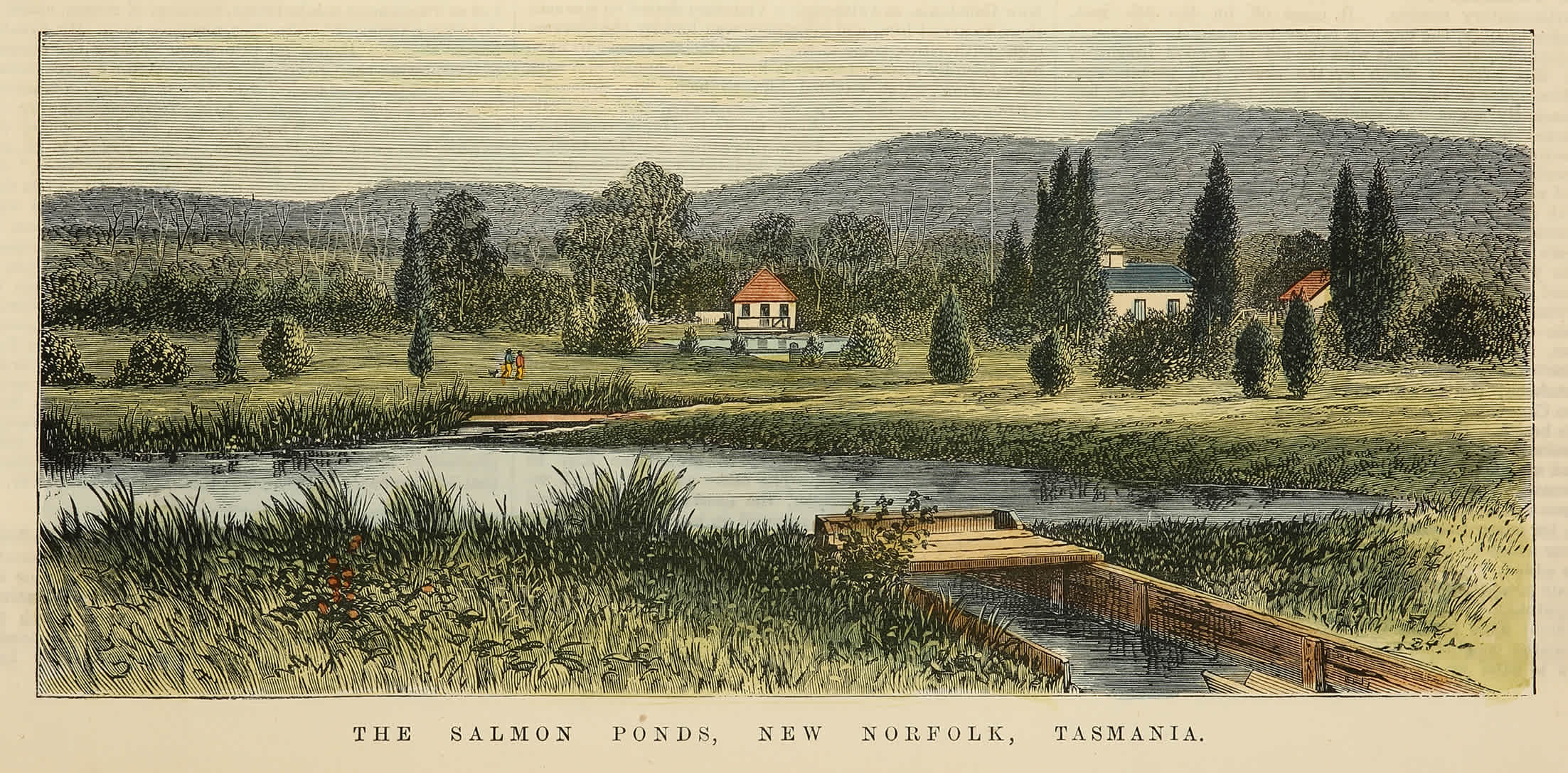Perhaps that’s why I was drawn down from the mountains and forest to live at the edge of the sea. When my own mother died, that deep body of water held me. The pain of the cold relieved a little of the pain of the grief. If I still lived where the wind blows over the dolerite rich peppermint forest of our mountain, kunanyi, I might be unstable and drifting, whereas the ocean’s grip has helped me to be strong.
My swim is often taken while my heart is pumping hard after a run or a kayak. I find myself longing for immersion even while I’m still paddling. I watch the water from the boat and can imagine it caressing all of me.
I am captivated by the way Tasmanian women in their middle of age are embracing cold water swimming. It takes a certain amount of courage, and a willingness to push body and mind far out of any comfort zone. The sheer number of women who choose to shed puffer jackets and dive into freezing cold water must mean it is more than a desire to swim or prove themselves – no, ourselves – tough. What is it that drives this self-torture? The once infamous nude mid-winter plunge has become a dismissive shoulder shrug in comparison to the multiple swims a week some women are indulging in throughout the depths of winter.
Is it due to some hidden call of the water? As if it were playing within a frequency that can only be heard as we reach a certain time of life. The way that children can hear the whale song, but the same sound can be lost to our aging ears. As if the looming spectre of menopause and the loss of hearing could make space in our minds for deeper sounds. The call of the ocean perhaps.
We must tell our children to listen for the songs of the whales before it is too late, but also tell them there are more sounds awaiting them as they age. To give them a sense of hope for aging, as opposed to despair. For they too may hear a call from the depths of the ocean, and be pulled in and embraced in her cold shawl. They too could be tumbled and lifted by the swell as they burst into squeals of joy and pain. Others more like myself may prefer to be alone and silent within the heady rushes of endorphins.
Or perhaps it is as if, as the child rearing, family supporting, career building years ease, they leave behind them a slight stain, perhaps tasting a little of resentment, that can be washed clean for a time with cold water, preferably clean and salty, with ripples from the deep depths of the ocean floor. The fresh-water swimmers may dispute this, but it is in the ocean that I feel I am being held by a sort of maternal energy that nurtures me as I dive beneath the surface.
Do fresh water swimmers have the same feeling when they submerge into the run-off from glacial mountains? The sharp cold of a river waterhole has a bite to it that penetrates deep into bones, and from experience my fingers are left white and bloodless for a much longer time, but I’m not sure I feel the same comfort and sense of being held that I do from being in the sea. On some level, as if I’m being held by my mother. It makes me wonder if more men are drawn to fresh water to plunge into rather than salt, but I don’t know why I think this. Men need their mothers too.
Perhaps that’s why I was drawn down from the mountains and forest to live at the edge of the sea. When my own mother died, that deep body of water held me. The pain of the cold relieved a little of the pain of the grief. If I still lived where the wind blows over the dolerite rich peppermint forest of our mountain, kunanyi, I might be unstable and drifting, whereas the ocean’s grip has helped me to be strong. At a time in life when I’ve felt as though the earth revolved without me, and my heart was broken, I gathered my raw emotions and submerged with them into the cold wildness. My land-bound world couldn’t hold my pain, but in the ocean, it fitted. With all its jagged edges, it sank into the currents until the sharp bits softened.
Whenever I can, perhaps a few times a week, I stand at the water’s edge, breathe and remind myself to be present. I notice the small, curved strip of white sand, the colourful boat sheds and empty beach, and breathe some more. I concentrate on the sand beneath my toes. I walk into the gentle waves, slow and steady through the water.
I move forwards until I’m perhaps thigh deep, pause, and breathe again as the cold bites, then dive under, blowing outwards so my panicked body doesn’t suck in a lethal lungful of water. My amygdala screams escape, while my deeper thinking mind, my pre-frontal cortex, demands I stay. It tells me I will survive this. It’s only cold, it won’t hurt me. Air stops entering my lungs and cold clutches as a fist, squeezing, and it feels as though water is entering my very bloodstream, which in a way it is as my blood runs colder.
They say never to warm up a hypothermic person by their extremities, as the cold water in veins and arteries can then be pushed to the heart, which can stop.
My body remembers to inhale as I push through the water, all conscious thought removed, a forced meditation that not only banishes thought, it expels the pain of my grief. My mind sharpens like a knife in order to survive the intense cold, and therefore shifts from despair. A little while after the swim, once my body has relaxed enough to remember, the grief slides back in, but now it echoes with endorphins that sing and which help to carry the load.
I can’t answer for all the women, or the men, who choose the icy embrace of the water like a self-amelioration or perhaps a flagellation ritual. I don’t have the strong network of other women around me that I know so many others crave, who support each other to take the plunge. One day I may ask to join the “Cormorants” or the “Sea Hags”, and enjoy the huddle of oodies and camaraderie of a thermos passed around. But for today, I choose to be alone, only myself and the water, breathing, feeling, and letting go. The deep cold embrace that enables my beleaguered heart to rest, yet pays homage to the woman my mother was and the love I feel for her.
I don’t know the one reason as to why, in this Southernmost habitable tip of the world, women in their droves walk into the cold ocean, but I know mine. The ocean is calling me, and I will answer her call.
This story was first published in Karen Harrland's book, Daughter of the Plateau.
Karen Harrland and her family spent several years living and working as managers on isolated conservation reserves in the Simpson Desert and outside of Broken Hill. Karen now works as a storytelling teacher at a primary school, but whenever possible she will be found writing, bushwalking or swimming in the Tasmanian wilderness.
Her first book, the memoir Spinifex Baby, won the National 2014 Finch Memoir Prize. She now lives on the flanks of kunanyi/Mt Wellington, not too far from the Central Plateau where that story begins. Her second book, Daughter of the Plateau, was published by Forty South Publishing in 2022.








